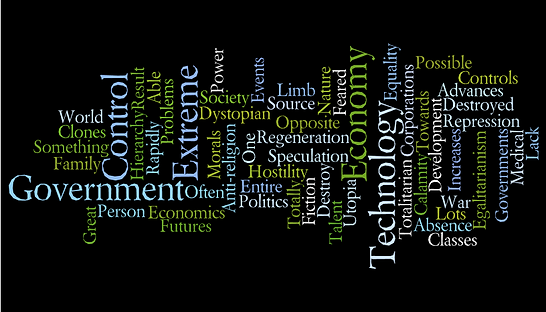

Utopian fiction
The word utopia was first used in direct context by Sir Thomas More in his 1516 work Utopia. The word utopia resembles both the Greek words "no place", "outopos", and "good place", "eutopos". In his book, which was written in Latin, More sets out a vision of an ideal society. As the title suggests, the work presents an ambiguous and ironic projection of the ideal state. The whimsical nature of the text can be confirmed by the narrator of Utopia's second book, Raphael Hythloday. The Greek root of Hythloday suggests an 'expert in nonsense'. An earlier example of a Utopian work from classical antiquity is Plato's The Republic, in which he outlines what he sees as the ideal society and its political system. Later examples can be seen in Samuel Johnson's The History of Rasselas, Prince of Abissinia and Samuel Butler's Erewhon, which uses an anagram of "nowhere" as its title. This, like much of the utopian literature, can be seen as utopian satire which is most notable in the inversion of illness and crime which Butler portrays, with punishment for the former and treatment for the latter.
Dystopian fiction
Dystopia is defined as a society characterized by a focus on mass poverty, squalor, suffering, or oppression, that society has most often brought upon itself. Most authors of dystopian fiction explore at least one reason why things are that way, often as an analogy for similar issues in the real world. In the words of Keith M. Booker, dystopian literature is used to "provide fresh perspectives on problematic social and political practices that might otherwise be taken for granted or considered natural and inevitable".
Dystopias usually extrapolate elements of contemporary society and are read by many as political warnings. Many purported utopias reveal a dystopian character by suppressing justice, freedom and happiness. Samuel Butler's Erewhon can be seen as a dystopia because of the way sick people are punished as criminals while thieves are cured in hospitals, which the inhabitants of Erewhon see as natural and right, i.e. utopian (as mocked in Voltaire's Candide). The 1921 novel We by Yevgeny Zamyatin predicts a post-apocalyptic future in which society is entirely based on logic and modeled after mechanical systems; also, George Orwell cited it as an influence on his Nineteen Eighty-Four. Aldous Huxley's novel Brave New World is a more subtle and more threatening dystopia because he projected into the year 2540 industrial and social changes he perceived in 1931, leading to a fascist hierarchy of society, industrially successful by exploiting a slave class conditioned and drugged to obey and enjoy their servitude. Orwell's Nineteen Eighty-Four is a dystopian novel about a coercive and impoverished totalitarian society, conditioning its population through propaganda rather than drugs. Anthony Burgess' 1962 novel A Clockwork Orange is set in a future English society that has a culture of extreme youth violence, and details the protagonists experiences with state authorities intent on reforming him. Margaret Atwood's The Handmaid's Tale describes a future North America governed by strict religious rules which only the privileged dare defy. Examples of young adult dystopian fiction include The Hunger Games by Suzanne Collins, The House of the Scorpion by Nancy Farmer, Divergent by Veronica Roth, The Maze Runner by James Dashner, and Delirium by Lauren Oliver. Video games often include dystopias as well; notable examples include the Fallout series and the later games of the Half-Life series.

Dystopia in Movies
Read Anthem. If you are in the mood read The Giver. It´s an easy read.
Dystopian Fiction
The utopia and its offshoot, the dystopia, are genres of literature that explore social and political structures. Utopian fiction is the creation of an ideal society, or utopia, as the setting for a novel. Dystopian fiction (sometimes referred to as apocalyptic literature) is the opposite: creation of an utterly horrible or degraded society that is generally headed to an irreversible oblivion, or dystopia. Many novels combine both, often as a metaphor for the different directions humanity can take in its choices, ending up with one of two possible futures. Both utopias and dystopias are commonly found in science fiction and other speculative fiction genres, and arguably are by definition a type of speculative fiction.
More than 400 utopian works were published prior to the year 1900 in the English language alone, with more than a thousand others during the twentieth century.
